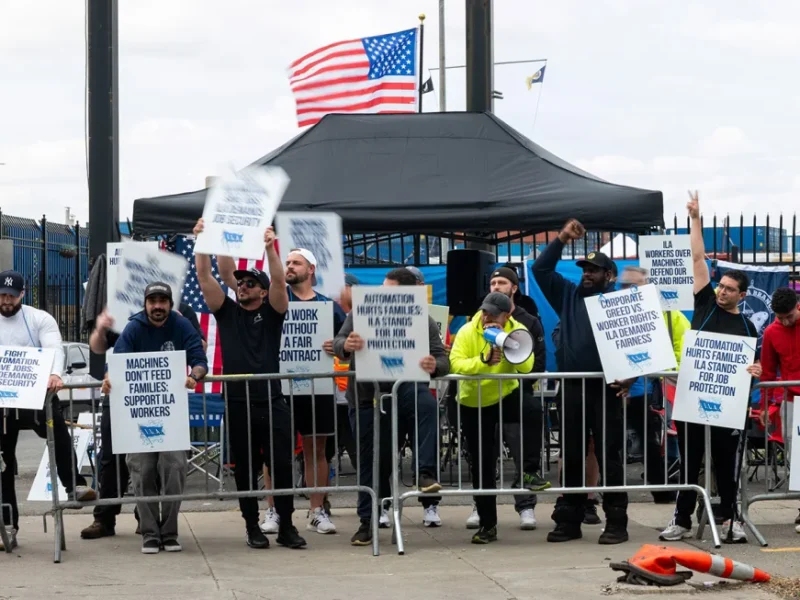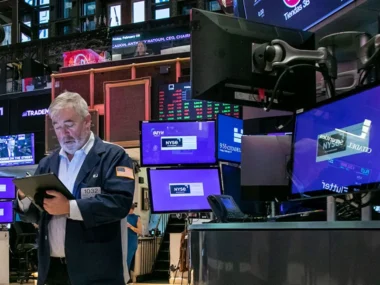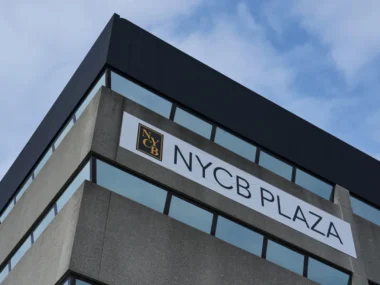With just over a month until the U.S. presidential election, a trifecta of economic challenges—namely a port strike, a hurricane, and escalating conflict in the Middle East—threatens to undermine Vice President Kamala Harris’ momentum on voters’ top concern: the economy.
While the U.S. economy is robust in many aspects, it currently finds itself in a precarious position. These developments provide political leverage for Republicans aiming to portray the vice president as part of a failing administration that has left consumers struggling with high prices, while conveniently overlooking over three years of consistent job growth and consumer spending.
Former President Donald Trump has quickly sought to associate this sense of chaos with his opponent, possibly hoping voters will forget the turmoil of his own presidency. “The world is on fire and spiraling out of control,” he stated on Tuesday.
Harris’ representatives, following her meeting with first responders in Georgia, chose not to comment.
It’s important to note that no single individual or administration is responsible for these events. However, in an election where Republican and Democratic candidates are nearly tied and voters are focused on the economy’s state, the negative optics of recent news appear to disadvantage the incumbent party.

Gas prices are expected to drop below an average of $3 by the end of October.
Price pressures.
Falling gas prices in the U.S. should have benefited Harris, as voters often associate pump prices with the party in power. Prices were projected to dip below an average of $3 by the end of October. However, the recent escalation of fighting in the Middle East caused global oil prices to surge on Tuesday and Wednesday, raising concerns about potential price increases for American drivers.
Additional price pressures could emerge if the East Coast port strike, which began Tuesday, lasts more than a week. The work stoppage is disrupting the flow of various goods across nearly all cargo ports from Maine to Texas. Some estimates suggest that the strike could cost the economy $5 billion per week. If it continues, consumers may experience shortages at grocery stores and higher prices on certain items.
“The last thing the supply chain, companies, and employees need is a strike or other disruptions,” business leaders expressed in a letter to the White House last week, urging the Biden administration to take action.
Concerns about the job market.
In the Southeast, tragedies are escalating, with at least 180 fatalities reported since Hurricane Helene impacted the region last week. As of Wednesday, many roads remain closed, and extensive areas in the Carolinas, Florida, and Tennessee are without power. While it is difficult to estimate the economic repercussions at this time, Moody’s projected on Monday that losses could reach up to $34 billion.
The hurricane’s devastation is likely to result in temporary job losses and furloughs as businesses recover. These layoffs, along with similar job losses stemming from the Boeing and port strikes, may lead to a bleak jobs report for October, set to be released on the first Friday of November, just four days before Election Day.
It’s worth noting that the U.S. has added jobs consistently for the past four years, helping to recover from the brief pandemic recession and providing the Biden administration with a strong pro-labor narrative.
However, the combination of ongoing strikes and Hurricane Helene may disrupt this positive trend.
Oxford Economics researchers indicated on Wednesday that “if the Boeing strike and the port strike … continue into the second week of October, job growth for October could turn negative.”
The last time a negative jobs report was recorded in the U.S. was December 2020, during the final month of the Trump administration. While any job losses in October are likely to be temporary, the timing of the report, which is usually released on the first Friday of the month, poses a significant challenge for the Harris camp.











